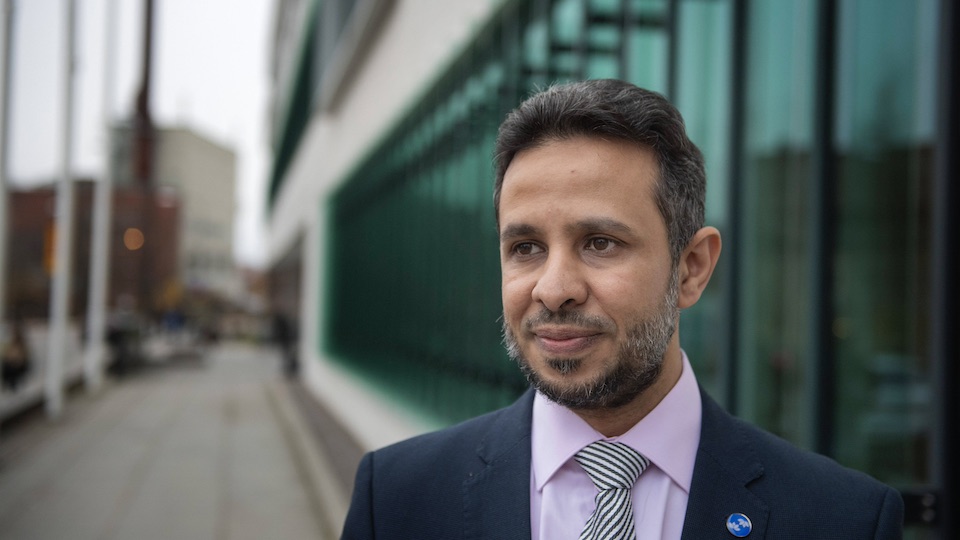UK: Dissident can pursue legal action against Saudi Arabia for spyware attack

The prominent human rights activist Yahya Assiri can bring suit in British court against Saudi Arabia for its alleged use of spyware against him. The High Court in London ruled that Assiri’s suit could move forward; his lawyers announced the decision last week. Human rights groups call the decision an “important step.”
As Assiri’s lawyer Monika Sobiecki wrote, “the High Court has accepted our evidence that Yahya has a reasonable prospect of winning his claim against the Kingdom of Saudi Arabia and thus has granted permission for the claim to be served out on the state.”
Assiri accuses the Kingdom of Saudi Arabia of using surveillance software to spy on him between 2018 and 2020, when he was living in exile in Britain.
Human rights activist in exile
Assiri is the founder of the London-based human rights organization ALQST, which focuses on Saudi Arabia. He is also a founding member of the National Assembly Party, a Saudi opposition party that operates in exile in London.
Assiri became increasingly critical of the Saudi royal family while serving as an officer in the Royal Saudi Air Force. He left his homeland in 2013, after coming under suspicion for making comments critical of the government online under the pseudonym Abu Fares. In exile in London, he came forward and revealed himself as Abu Fares and founded ALQST. In 2017 he was granted asylum in the UK.
First spyware attacks confirmed in 2018
In 2018, technologists at Amnesty International first investigated texts and WhatsApp messages received by Assiri and an Amnesty staff member. They were able to demonstrate that the texts were attempts to infiltrate Assiri’s smartphone with Pegasus spyware.
Pegasus is developed by NSO Group, an Israeli company. Using the spyware, attackers can fully take control of a target’s smartphone, viewing saved data and messages and listening in on phone calls. The phone’s location can be tracked, and its camera and microphone can be covertly activated.
NSO Group claims to sell its spyware only to government clients. For years, Pegasus has been linked to human rights abuses.
People close to the journalist Jamal Khashoggi, who was murdered at the Saudi consulate in Istanbul in 2018, were reportedly spied on using Pegasus before and after the murder. According to an investigation by the Guardian and other media outlets, Saudi Arabia was behind this covert action.
Multiple forms of spyware deployed
Assiri also accuses Saudi Arabia of targeting him using the lesser known Reign spyware developed by the QuaDream company. According to his lawyers, security experts from Citizen Lab in Toronto have shown that his mobile phone was infected with both Reign and Pegasus.
As ALQST writes in a post on its website, the court’s decision means that the UK Foreign, Commonwealth and Development Office must now serve Assiri’s claim on the Saudi Ministry of Foreign Affairs.
Speaking to Amnesty International Assiri’s lawyer Monika Sobiecki said the decision was a huge moment for his case, since “the abuse of [Assiri’s] privacy rights now formally calls for an explanation from the state.”
Concern about contacts
Assiri said in a statement: “I am fully aware that the authorities will want to target me. However, it is outrageous for them also to target individuals such as the victims of rights abuses and their families in Saudi Arabia simply because these people have been in contact with me. We have no idea how the authorities might use the information found on my device against them.”
“Saudi authorities have for years been using spyware against human rights defenders living in other countries who seek to document the worst of the government’s abuses,” said Joey Shea, a Saudi Arabia researcher at Human Rights Watch (HRW). “This case is an important step toward accountability and justice.”
Cases brought against Saudi Arabia and Bahrain
A case brought by another Saudi dissident who accuses the country of using spyware against him has been making its way through UK courts since 2020. The High Court ruled in 2022 that the Saudi government could not claim immunity in the case. This January an appeals court ruled that the case could move forward.
Legal action has also been taken by dissidents from Bahrain now living in the UK, who allege that Bahrain’s government spied on them using FinFisher spyware. Earlier this month a British appeals court dismissed a claim of state immunity made by Bahrain. Security experts at Citizen Lab accuse the country’s authoritarian government of repeatedly using Pegasus to spy on activists. (js)